Why I won’t campaign for Professor Yemi Osinbajo
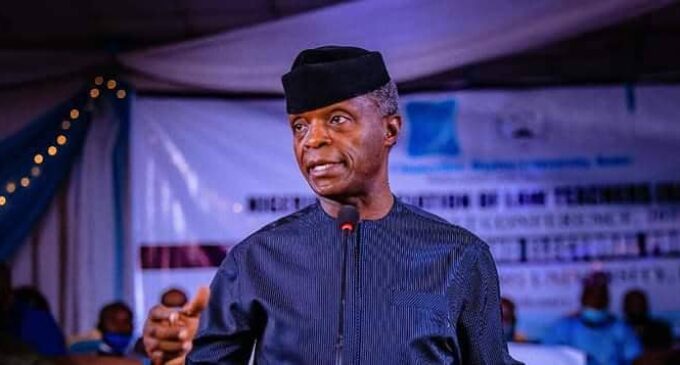
Nigeria, presently, is at such a juncture when the job of being the “president of the Federal Republic of Nigeria” is not the most attractive one, in the land. Peopled by no fewer than one-fifth of the world’s dark-complexioned people, Nigeria is going through a lot, and is, therefore, in need of a leader with, not just the intention or potential, but proven capacity tackles her problems, headlong. So, it amazes me, how and why all manners of characters jostle for the “top job”, pretending to have the capacity to deliver when their conspicuous failure in lesser responsibilities still stinks. It is not attractive for discerning minds, who understand and appreciate the enormity of the task that needs to be done if Nigeria must be fixed.
In all sincerity, it takes capacity, courage, the strength of character, conviction, empathy for the masses, and above patriotism for one to be qualified to step forward and offer himself to serve in that capacity. Most often, the above qualities, majorly intrinsic, are not discernible, except for someone with a knack for identifying talents; and also, someone who is very close to the person (aspirant) under focus. So, when you have witnessed, first-hand, someone who had put those qualities on display, when an opportunity presented itself, it is easy to flow with the idea that, such a person has the capacity to deliver on the job, and should, therefore, be given the opportunity for a shot at it.
The expression of interest, by the vice president, His Excellency, Yemi Osinbajo is one that shakes the political firmament of Nigeria, for reasons that vary from person to person, depending on individuals’ political affiliations. But for those Nigerians, who are apolitical, and without any fear of equivocation, in the majority among those who’d vote, we could see that Yemi Osinbajo, on occasions, when he had acted as the president and commander-in-chief of the armed forces of the Federal Republic of Nigeria, he had demonstrated all of the above qualities, and the records are there to show.
Nothing captures it more succinctly than when political analysts, metaphorically, refer to the office of the vice president or that of the deputy governor, as a “spare tyre”. What do we use a spare tyre for? It is used as a backup, whenever any of the four main ones go flat. So, it is only when the president, for one reason or the other, is unable to discharge his responsibility as the president and the commander-in-chief of the Armed Forces of the Federal Republic of Nigeria, that, the vice president steps in to fill the vacuum. That is what the 1999 constitution says, in section 141 of the 1999 constitution, where it proclaims the existence of the office of the vice president of the Federal Republic of Nigeria, no detail is given as to the definite function of the person occupying the office as the “Number-two” citizen of the country, except that he or she heads the economic management team of the federal government. The executive functions of the Nigerian vice president include; attending all cabinet meetings and, by statute, membership in the national security council, the national defence council, the federal executive council, and that, he is the chairman of the national economic council.
What I am saying, in essence, is that the Nigerian vice president performs only those duties assigned to him by his principal, the president, unlike in the United States of America, where the vice president is the head of the upper legislative chamber, the equivalent of our senate president in Nigeria. What this entail is that, apart from these few itemized above, the Nigerian vice president is at the mercy of the president, as far as relevance, in terms of responsibility and the exercise of executive, is concerned. The power and the will to according to their conviction are therefore circumscribed and they tend to tread with caution. But Osinbajo has punctured the narrative, as he’d taken some far-reaching decisions in the absence of his principal, without appearing to want to outshine his boss. As a matter of fact, they were to the satisfaction of his boss, contrary to what circulated on social media, at the time.
It is such a dangerous situation for whoever occupies that office in Nigeria, that, if he performs too brilliantly, whenever he acts as the president, he could be accused of being over-ambitious, or being guilty of trying to out-shine his master. During the administration of President Olusegun Obasanjo, the cordial interpersonal and work relationship that existed between the president and his vice, Atiku Abubakar bellies the lack of clearly defined duties of the occupant of the office of the vice president, until the latter defected to the Action Congress, in pursuit of his presidential ambition, in 2006.
Atiku was saddled with the responsibility of overseeing the National Council on Privatization (NCP) — a think tank committee, set up, by the Obasanjo government to determine the political, economic and social objectives of the privatisation and commercialization of moribund Nigeria’s public enterprises. This was in addition to other key portfolios under the purview of the office of the vice president. Privatization (liberalization) of the economy, was a major economic policy thrust of the Obasanjo administration, which was one of the reasons why Atiku was almost everywhere – larger than life.
Apart from when the need arises, to evoke section 145. (1) which says: “Whenever the president is proceeding on vacation or is otherwise unable to discharge the functions of his office, he shall transmit a written declaration to the president of the senate and the speaker of the house of representatives to that effect, and until he transmits to them a written declaration to the contrary, the vice president shall perform the functions of the president as acting president:
And subsection (2) says: “In the event that the president is unable, or fails to transmit the written declaration mentioned in subsection (1) of this section within 21 days, the national assembly shall, by a resolution made by a simple majority of the vote of each house of the national assembly, mandate the vice president to perform the functions of the office of the president as acting president until the president transmits a letter to the president of the senate and speaker of the house of representatives that he is now available to resume his functions as president”.
In the year 2016, when President Muhammadu Buhari was going on a 10-day vacation; he, in fulfilment of the provision of the constitution, transmitted a letter to the national assembly to the effect of handing over power to his vice, Yemi Osinbajo, who consequently, assumed the power of the president and commander-in-chief of the armed forces of the Federal Republic of Nigeria, in an acting capacity, in compliance with section 145 of the 1999 constitution. Some people found it strange because it rarely happens, especially, at the level of state governors, some of whom prefer to often hand over, albeit unofficially and illegally, to their chief of staff (an office that is unknown to the constitution), or the secretary to the state government (SSG) depending on who he finds most trust-worthy. But, to the amazement of some keen observers of Nigeria’s politics, the letter sent to the national assembly empowered the vice president, Professor Yemi Osinbajo to be sworn in. He was not only sworn in but also took some landmark decisions that were very strategic in the core business of governance. Some of these executive decisions would be highlighted as follows.
While Osinbajo was acting as the president, he transmitted a letter to the national assembly seeking the confirmation of the acting Economic and Financial Crimes Commission, EFCC, chairman, Ibrahim Magu as substantive chairman of the commission, on July 14, 2016. The Senate under the leadership of Senator Bukola Saraki, however, rejected Magu, after many months of politicking, due to a counter-report from the State Security Service, SSS, questioning his (Magu’s) integrity. It happened again in May 2017, when President Buhari embarked on what he called; “Medical Vacation”, which lasted for about three months. It took so long that, some of the President’s political adversaries even, insinuated that, he was dead; and up to now, are still claiming that the “cabal” in Aso Rock has only gone to hire the service of the President’s body-double, or his lookalike, named Jubril from Sudan, to represent a purportedly dead Buhari. During that long period, the Acting President did exercise some executive powers that left many students of “History of Contemporary Nigeria” wondering if the previous occupants of the office of the Vice President, have been that lucky to be so trusted, by their respective principals.
The visit Osinbajo embarked upon, to the South East, during the 50-year anniversary of the Civil War, commemorating the outbreak of the war, in 1967, was another monumental executive action in an acting capacity that does the image of the Law Professor no arm. It was a visit many political commentators described as confidence-boosting, wound-healing, and timely because it came at a time when Nnamdi Kanu’s Indigenous People of Biafra, IPOB-secessionist agitation was getting to its apogee. So, the visit came as a hope-inspiring move in the hearts of many Igbos, who are still smarting from the ugly experiences of having to lose their loved ones, life-savings, limbs and so on and so forth, to the unfortunate civil war. The visit, then, kind of doused tension a bit, as there were positive engagements between the Acting President and critical stakeholders in the region at the time. Osinbajo’s keynote speech appealing to people’s sense of unity was well-timed, as secessionist calls have grown louder in parts of the region.
There was also an “Executive Order”, (001) for “Ease of doing Business” in the country aimed at stimulating economic growth, and also, to reflate an economy in recession. Much of this is down to the acting president’s decisiveness in taking action, coupled with the fact that, he is the chairperson of the “National Economic Council”. Under his watch, Nigeria kicked off reforms at local ports, famed for their congestion, red-tapism and corruption. Entry visa rules for investors and tourists were also relaxed.
Another landmark decision he took as an acting president was the forwarding of Justice Walter Onnoghen’s name to the national assembly, for confirmation as the substantive Chief Justice of Nigeria, having occupied the post in an acting capacity for about 90 days, as stipulated by the constitution, confirmation, or removal therefore became a matter of compulsion.
But the most significant and most remarkable of all Osinbajo’s actions, as an acting president, was his removal from office, the immediate past director-general of State Security Services (SSS) Lawal Daura who was fired on August 7, 2018, after ordering a controversial siege to the national assembly in an alleged bid to force a leadership change in the national assembly; an act the international community perceived as, a threat to, and an assault on, democracy. Lawal Daura was regarded as one of the most powerful and untouchable heads of security agencies. But Osinbajo took the bull by the horn and had him relieved of the post. The next most senior officer, Solomon Seiyefa, was ordered to take over, with immediate effect.
It was also on one of the occasions he acted that, Osinbajo ordered that the Special Anti-Robbery Squad (SARS) of the police be disbanded and overhauled, as a direct response to public yearnings and aspirations; an action that was very popular with most Nigerian youths, especially those who have had nasty experiences in the hands of the operatives. This was preceded by the #EndSARS campaign on social media.
These are some of the most significant action of Professor Yemi Osinbajo, as an acting president, that demystifies the myth that a Nigerian vice president is as good as, a spare tyre.
From the foregoing, it should now be clear as to the reasons why I won’t be campaigning for him because he had already campaigned for himself, as a man who has a grasp of the challenges facing the country, having understudied President Buhari for about seven years, going into the 8th. He also demonstrated that he could be decisive, when faced with a matter that an average Nigerian politician would dither, before acting. All he therefore needs is that executive power to initiate the right change, and it would result in a win-win situation for everybody, in line with the dream of a united and progressive nation that was at the core of our founding fathers. It is my sincere hope that Nigerians would be able to read between the lines when the time comes for them to make the choices that would determine their political destinies for the nex four years.
Abubakar writes from Ilorin. He can be reached via 08051388285 or [email protected]
Views expressed by contributors are strictly personal and not of TheCable.









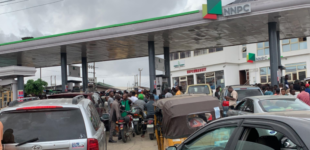
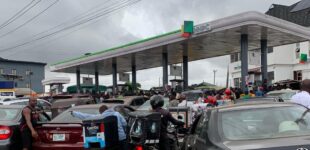
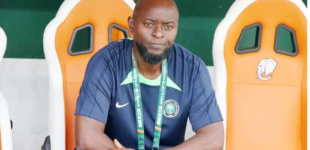
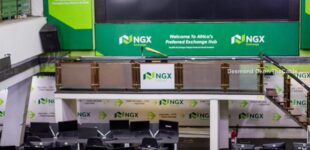
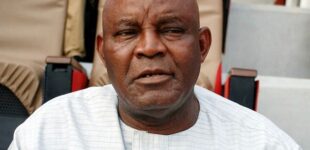
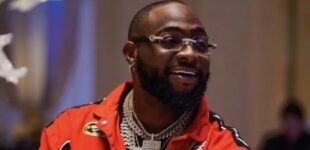

There are no comments at the moment, do you want to add one?
Write a comment